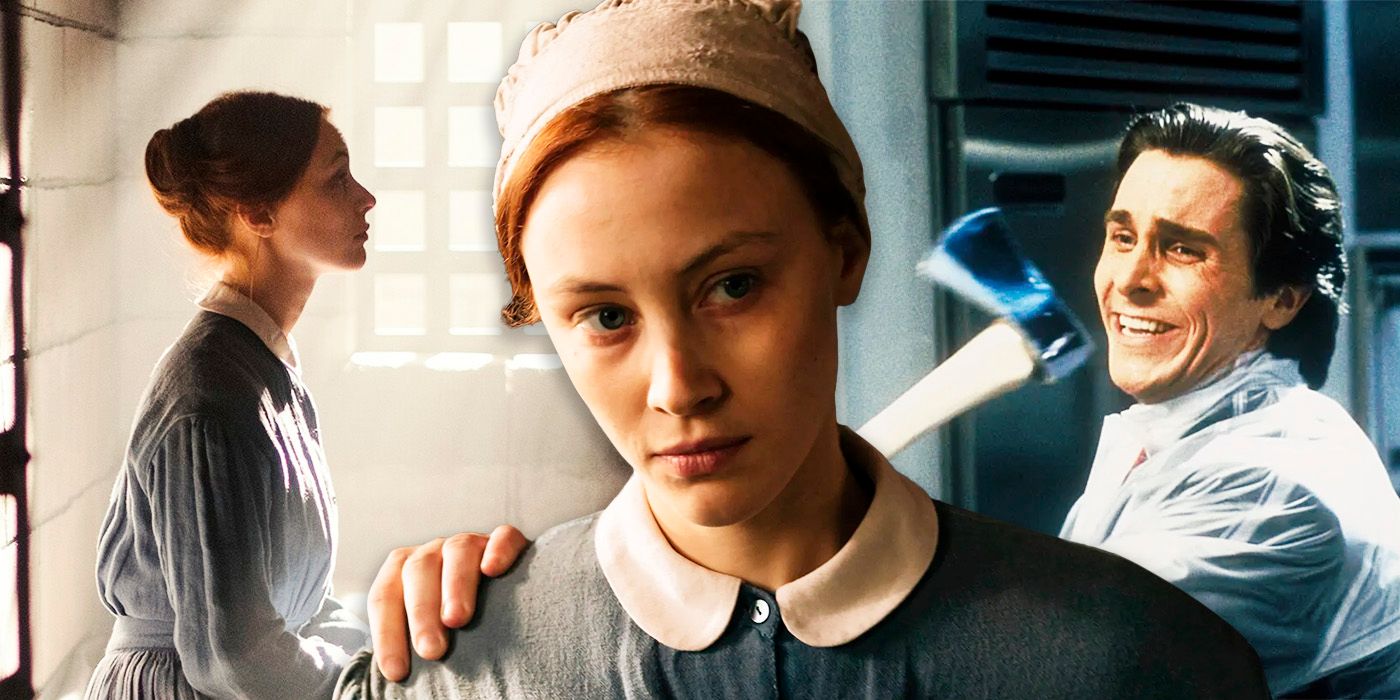
In the year 2000, Mary Harron brought the character of Patrick Bateman to life through her adaptation of Bret Easton Ellis’s 1991 novel. The film stood out for its clever use of Bateman’s disconnected, potentially delusional narrative, making viewers question reality itself. Alongside Christian Bale’s intense performance, the film’s success was largely due to Harron’s unique directorial style, which immersed audiences in the unsettling, often ambiguous minds of her characters. Seventeen years later, she employed the art of psychological exploration again in her 2017 Netflix series “Alias Grace“, providing a deep, chilling, and equally captivating experience.
Based on Margaret Atwood’s celebrated novel, Alias Grace presents a captivating retelling of the real-life mystery surrounding Grace Marks, an Irish immigrant servant who was accused and convicted for a double murder in 19th-century Canada. Despite having a very different setting and subject matter than Bateman’s yuppie world, Alias Grace shares similarities with American Psycho through its exploration of complex narratives, distorted realities, and the intricate relationship between perception and reality, all brought to life by Sarah Gadon’s spellbinding portrayal of the lead character.
Like American Psycho, Alias Grace is Layered With Psychological Depth
Alias Grace has a 99% on Rotten Tomatoes

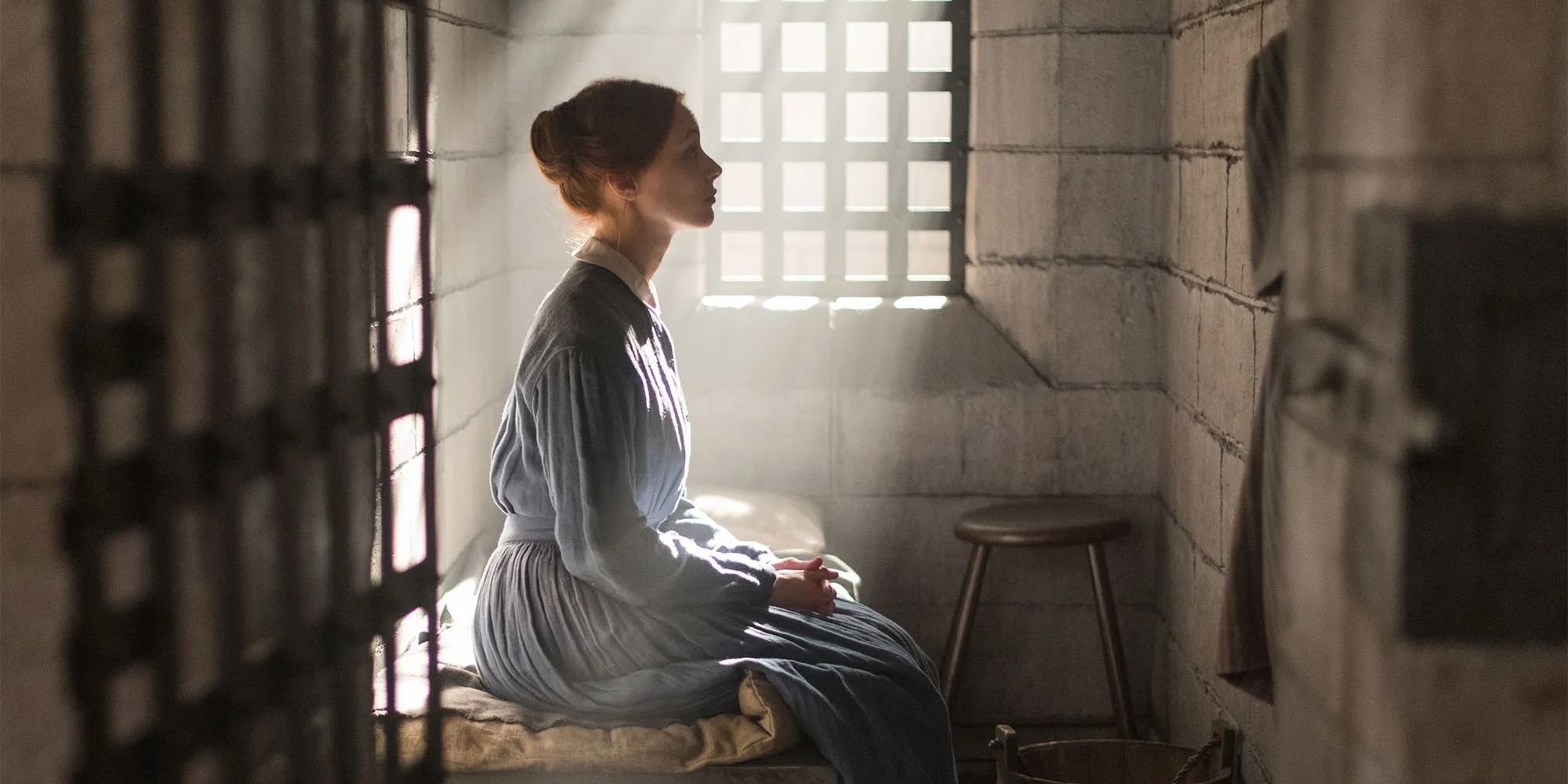

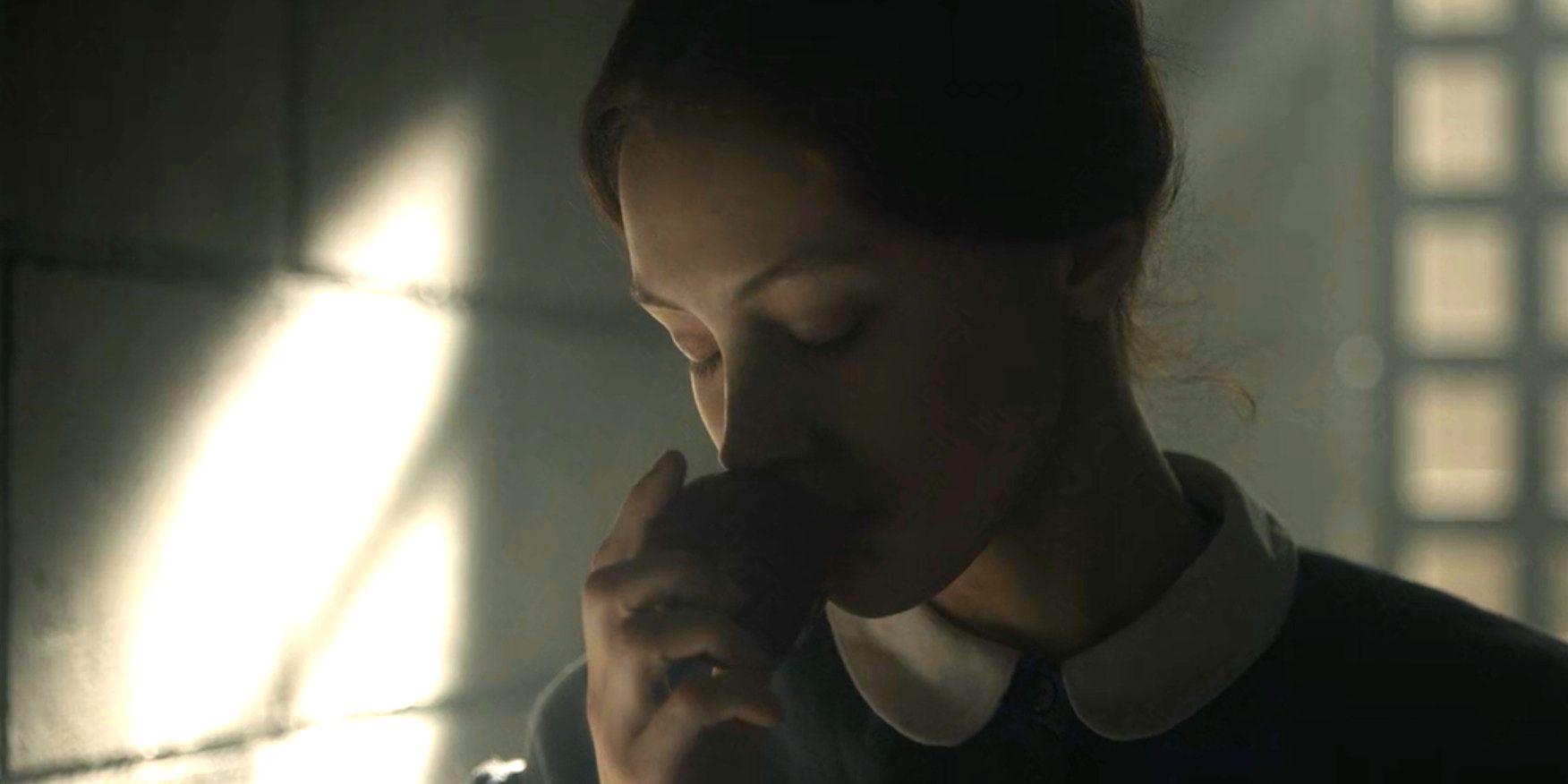
In the beginning, Alias Grace sets its central enigma and unique storytelling approach right away. The audience encounters Grace Marks (portrayed by Sarah Gadon), who is no longer a young woman convicted in 1843 but instead a well-known “murderess” serving her sentence, partially as a household worker in the home of the prison governor. Akin to the memorable scene from American Psycho, where the protagonist contemplates his inner thoughts while gazing into a mirror, Alias Grace positions its main character in a similar reflective stance.
The narrative largely revolves around Grace as she shares her life experiences with the psychologist Dr. Simon Jordan, a determined young psychiatrist often referred to as an “alienist.” His main objective was to help Grace recall events from the day of the murders of her employer, Thomas Kinnear, and his housekeeper, Nancy Montgomery, in hopes of securing her pardon. However, during their consultations, Dr. Jordan becomes increasingly captivated by Grace, leading him to lose sleep and even have vivid dreams about her. In addition to unearthing Grace’s memories, Dr. Jordan is also responsible for evaluating her mental state and potential guilt, years after her conviction.
As a dedicated cinephile, I’d say that what binds “American Psycho” and “Alias Grace” is Mary Harron’s unique storytelling approach, which frequently fractures into intense, possibly hallucinatory scenes. Grace Marks provides an alternate yet equally gripping exploration of an unreliable narrator. At times, she might lead viewers to believe they can easily decipher her, but in other instances, she morphs into different personas, switching between a demure, innocent girl and a girl with a chilling gaze. In her initial encounter with Dr. Jordan, Grace maintains a composed demeanor, a calculated docility that subtly suggests a complex character constructed from multiple layers. Sarah Gadon, in this very opening sequence alone, displays an astonishing range of talent, setting the stage for a performance that will undoubtedly be unforgettable.
As Grace starts her meetings with Dr. Jordan, her tale gradually emerges, frequently sparked by his inquiries as she continuously works on quilting with her hands never still, holding a needle. She shares her harrowing odyssey from Ireland to Canada where she endured the loss of her mother, the rigors of servitude, and most poignantly, her deep bond with fellow servant Mary Whitney (portrayed by Rebecca Liddiard). To immerse viewers directly in Grace’s personal perspective, Harron utilizes Grace’s voice-over narration.
In her conversation with Dr. Jordan, Grace establishes an intimate narrative tone reminiscent of Patrick Bateman’s chilling inner dialogues from American Psycho. However, unlike Bateman whose narration reveals sociopathic detachment or violent fantasies, Grace’s speech appears to stem from trauma, societal repression, and possibly a survival instinct deeply rooted within her.
In the first episode, Grace’s inner dialogue strikes a chilling note as she muses, “The term ‘murderess’ is a heavy burden that clings to you. It carries an odor, that word does – musky and overbearing, like decaying flowers in a vase. At times, when the night descends, I find myself whispering it softly, savoring the resonance of each syllable. Murderess. Murderess.” Every hesitation she exhibits, every detail she highlights or overlooks, every loop and dodge in her storyline suggests a narrative meticulously crafted, one that leaves Dr. Jordan – and me – questioning what is recalled, what has been forgotten, and what may be intentionally hidden.
Alias Grace Explores Female Gaze in a True-Crime Story
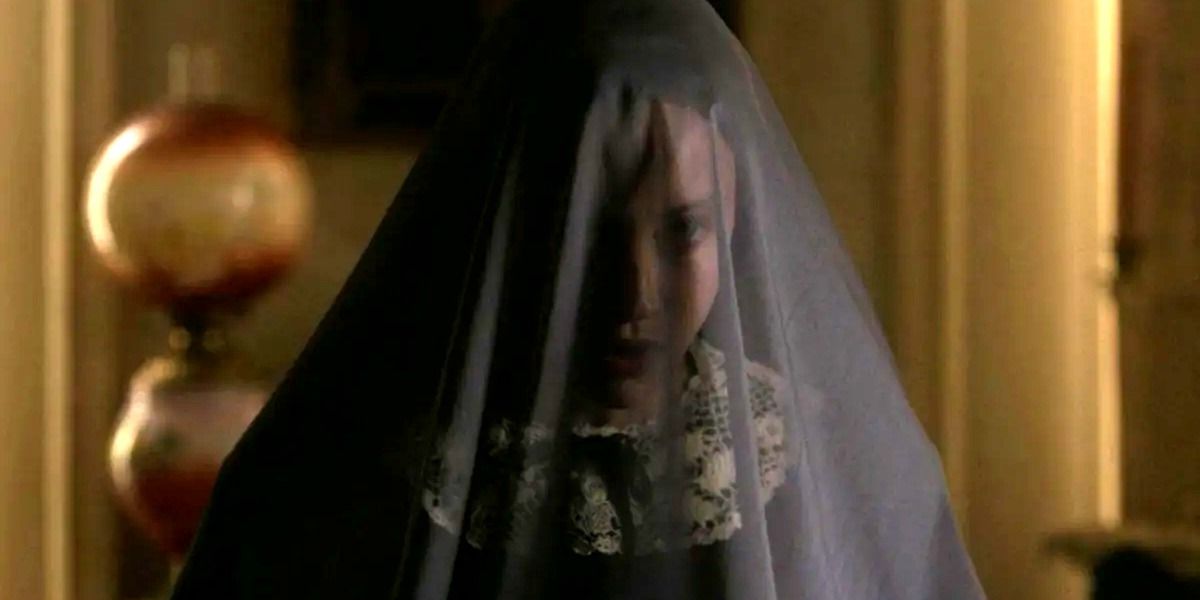

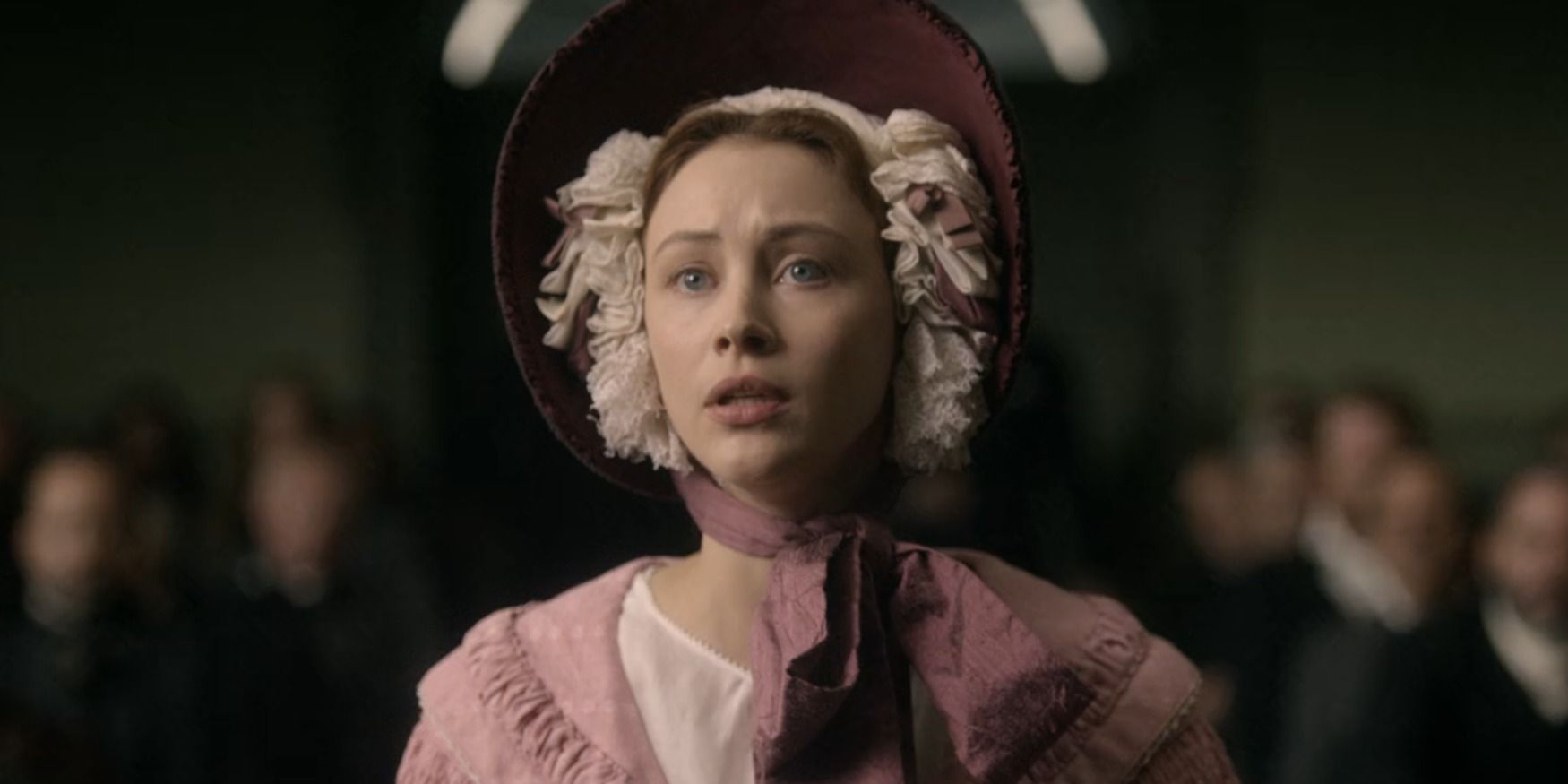
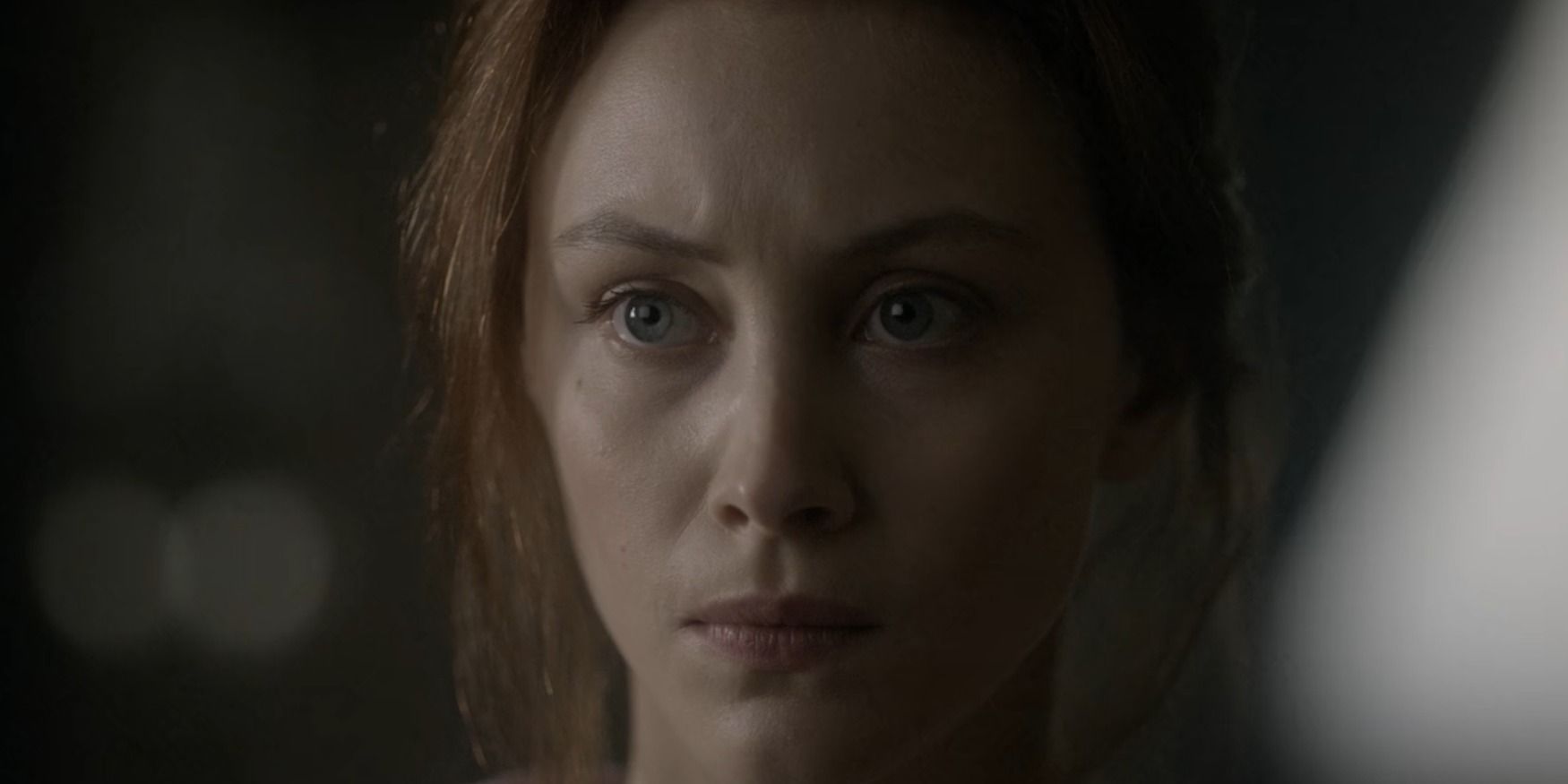
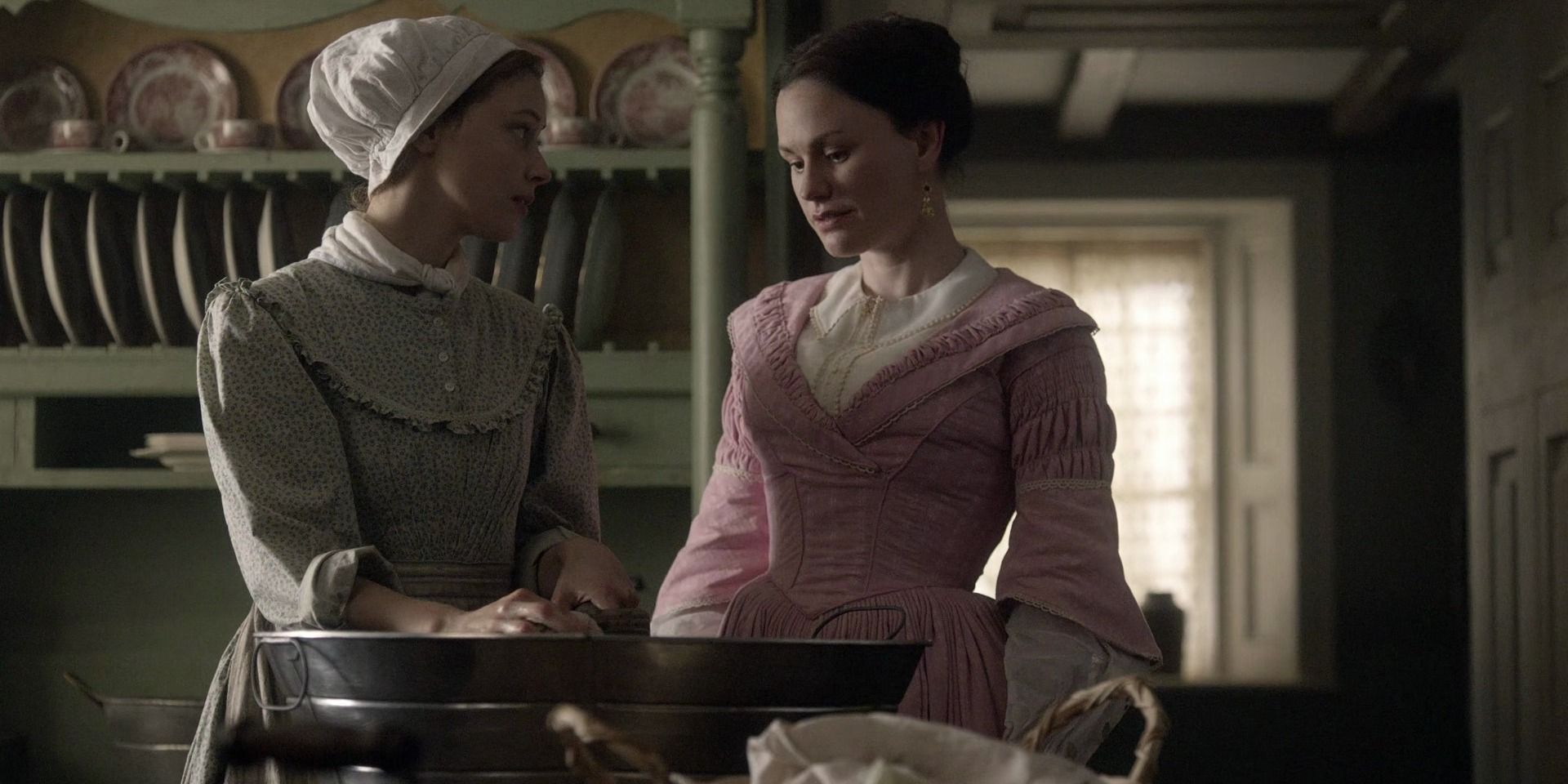
As a cinema enthusiast, I’d like to point out that “Alias Grace” distinguishes itself from “American Psycho” and conventional true crime narratives by its unwavering dedication to a female perspective, often referred to as the ‘female gaze’. This isn’t just a tale about a woman accused of murder; it’s a narrative, largely constrained by historical circumstances, that delves into her experiences, drawing heavily from Margaret Atwood’s feminist reinterpretation of the case. The creators of the show were meticulous in portraying Grace’s journey within a male-dominated world where she was expected to remain silent amidst relentless accounts of abuse and harassment. In a chat with Mary Harron, she mentioned:
“We wanted to tell Grace’s story, not just the story of a woman accused of murder, but her journey in a male-dominated society where she was expected to be silent despite facing endless accounts of abuse and harassment.
The production additionally portrays the harsh constraints Grace, a destitute, young Irish immigrant woman in 19th-century Canada, had to endure, making her susceptible to mistreatment and misuse. Her initial stints in multiple households reveal this, yet it’s her connection with the spirited, rebellious Mary Whitney that encapsulates the central theme. While working at Parkinson’s, Grace and Mary enjoyed mutual support and aspirations for autonomy. However, when Grace ultimately finds solace and happiness through this relationship, Mary passes away due to a secret abortion following an unwanted pregnancy by one of the household’s sons.
In the 19th century, much like other periods, life wasn’t easy for many women, including getting pregnant outside of marriage, often leading to tragic consequences such as death. Mary’s untimely demise significantly affected a vulnerable young Grace, influencing her perspectives and possibly guiding her future decisions. The series frequently portrays events from Grace’s point of view, focusing on the men around her – the compassionate Dr. Jordan, the predatory Thomas Kinnear (Paul Gross), the volatile James McDermott (Kerr Logan) – as well as the women who either offer brief glimmers of camaraderie or disapproval.
Sarrah Polley sought to delve into the topics surrounding female identity within her tale, which still hold relevance today. As she shared, “Alias Grace discusses issues such as class, immigration, and women’s rights, which were captivating. However, what stands out most now is the urgency of the messages being conveyed.” It is worth noting that the themes and narrative of Alias Grace hold a significant impact due to their connection with the actual, shocking 1843 case involving Grace Marks and James McDermott, who were accused of murdering their employer Thomas Kinnear and his housekeeper/lover Nancy Montgomery in Upper Canada.
Historians agree that the truth about Grace’s involvement is complex and shrouded in differing accounts, conjecture, and public debate. This ambiguity serves as a starting point for the author to delve into how societal influences shape the stories we tell about women.
Alias Grace’s Beauty Lies in its Ambiguous Ending




The enigma surrounding Grace Marks’ story, one of the most intriguing in the realm of true crime, persists due to a lack of solid evidence confirming her role in the murders of Thomas Kinnear and Nancy Montgomery. This ambiguity allowed Margaret Atwood to explore her creative ideas, an approach later echoed by writer Sarah Polley who suggested that definitive answers may be elusive or unnecessary. In an interview, director Harron expressed her fascination with Grace’s case because it presents “no final answer.” She further stated:
– Director Harron, in conversation, found Grace Marks’ tale captivating because there is “no conclusive answer.” She added:
In the final episode of the series, Jeremiah Pontelli (Zachary Levi), who has transformed from a peddler into a mesmerist, hypnotizes Grace in order to recall memories from the day of the murder. During the hypnosis, instead of Grace, the voice and character of her late friend Mary Whitney emerge, speaking through Grace with a chilling intensity. “I’m not Grace,” Grace-as-Mary states, implying that Grace was unaware of the events, before implicating McDermott and hinting at her own spectral presence: “I told James to do it. I was there all along, right here where I am now.
Firstly, Sarah Gadon deserves praise for her captivating portrayal, and secondly, the hypnosis technique raised more queries. Was it a real manifestation of Mary’s spirit? Could it be a dissociative identity born from Grace’s trauma? Or was it Grace’s most intricate, conscious or subconscious acting yet? The show’s allure lies in its ambiguity, as it intentionally leaves these questions unanswered.
At the conclusion, Dr. Jordan departs from Kingston and Grace following their hypnosis session, yet he remains plagued by the tender emotions he harbored for Grace throughout. After several years, Grace is granted clemency and marries James Walsh, leading a tranquil existence, seemingly unfettered, but continuing to piece together her fractured recollections through quilting. The denouement sparks contemplation in the audience about guilt, innocence, and the enigma of ever truly understanding another’s mind, particularly when it has been molded by intense trauma.
In the narrative of “Alias Grace,” the story doesn’t aim to definitively prove Grace Marks’ guilt or innocence in the murders. Instead, by the end, you’ll understand why she might have been driven to take part, regardless of your initial beliefs about her involvement. The show delves deeply into the complexities and feminist aspects of a 19th-century woman’s life, focusing more on the reasons behind her actions than merely describing what happened.
Read More
- 50 Ankle Break & Score Sound ID Codes for Basketball Zero
- Who Is Harley Wallace? The Heartbreaking Truth Behind Bring Her Back’s Dedication
- 50 Goal Sound ID Codes for Blue Lock Rivals
- Mirren Star Legends Tier List [Global Release] (May 2025)
- Elden Ring Nightreign Enhanced Boss Arrives in Surprise Update
- How to play Delta Force Black Hawk Down campaign solo. Single player Explained
- KPop Demon Hunters: Real Ages Revealed?!
- Here’s Why Your Nintendo Switch 2 Display Looks So Blurry
- Death Stranding 2 Review – Tied Up
- MrBeast removes controversial AI thumbnail tool after wave of backlash
2025-05-16 21:51